
There have been press reports of a serious outbreak of American foulbrood (AFB) near Guisborough, Middlesborough, North Yorkshire. With 32 confirmed infected colonies, this is the biggest recorded outbreak since one in Norfolk in 2014.
WHAT IS AFB?
AFB is caused by a sporeforming bacterium, Paenibacillus larvae subsp. larvae. Larvae are infected when fed larval food contaminated with spores. The spores germinate in the larval gut and then move into the tissues where they multiply quickly. The infected larva dies, usually after the cell is sealed. It contains millions of spores which can lie dormant for many years and then germinate. The spores are also very resistant to high temperatures and many available disinfectants. They are thus extremely hard to eliminate. The infection will eventually kill the colony.
Spores can be spread by beekeepers moving infected combs between colonies and by the bees themselves via robbing, swarming and drifting.
WHAT ARE THE SYMPTOMS? How Can I Check?
This story is from the {{IssueName}} edition of {{MagazineName}}.
Start your 7-day Magzter GOLD free trial to access thousands of curated premium stories, and 9,000+ magazines and newspapers.
Already a subscriber ? Sign In
This story is from the {{IssueName}} edition of {{MagazineName}}.
Start your 7-day Magzter GOLD free trial to access thousands of curated premium stories, and 9,000+ magazines and newspapers.
Already a subscriber? Sign In
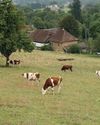
How to Buy a Smallholding in France- Long-time smallholder Lorraine Turnbull looks at the practicalities of moving to rural France
Aspiring smallholders are continually thwarted by the prices of smallholdings and property with land located within the UK. Even the humblest croft in Scotland comes with a substantial price tag and conditions which would make even an adventurous wannabee consider carefully. But all is not lost. For those willing to take the adventure of a lifetime, there is always Europe, and one of the most popular places is France.

Meet the Bournemouth goats and their supporters
These capricious animals are hard workers preserving the natural habitat
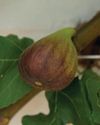
Still warm enough to sit outside with a Pizza
Henrietta Balcon uses fresh figs to create an unusual dish at Harvest time
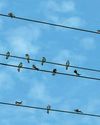
Goodbye to the birds of spring and summer
If you look and listen you might be able to see them preparing to leave says The RSPB
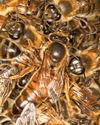
Get ready for the colder weather in the warmth of late summer
Claire Waring advises on doing the best to make sure your colonies survive until next spring
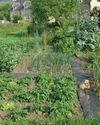
Preparing the Veg Patch for Winter
Lee Senior says, a well-run plot can excitingly continue to produce good quality, tasty, fresh food for much of winter
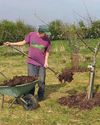
Time to prepare to plant your orchard
Wade Muggleton, smallholder and author of The Orchard Book, shares his practical experience so you can create your own fruit collection
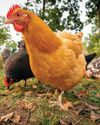
Choosing feed for the autumn
As autumn approaches, Joanna Palmer, nutritionist at the Smallholder Range, offers advice on choosing the right feed to support your adult birds through their annual moult and ensure your young birds grow and finish well at this time of the year.
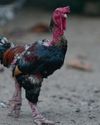
Vet advice from an experienced poultry vet
Reflecting on how much the humble hen has helped people world wide plus advice on stopping the scourge of red mite
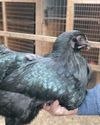
Give your hens some support
Paul Donovan looks at the right and wrong ways of handling birds